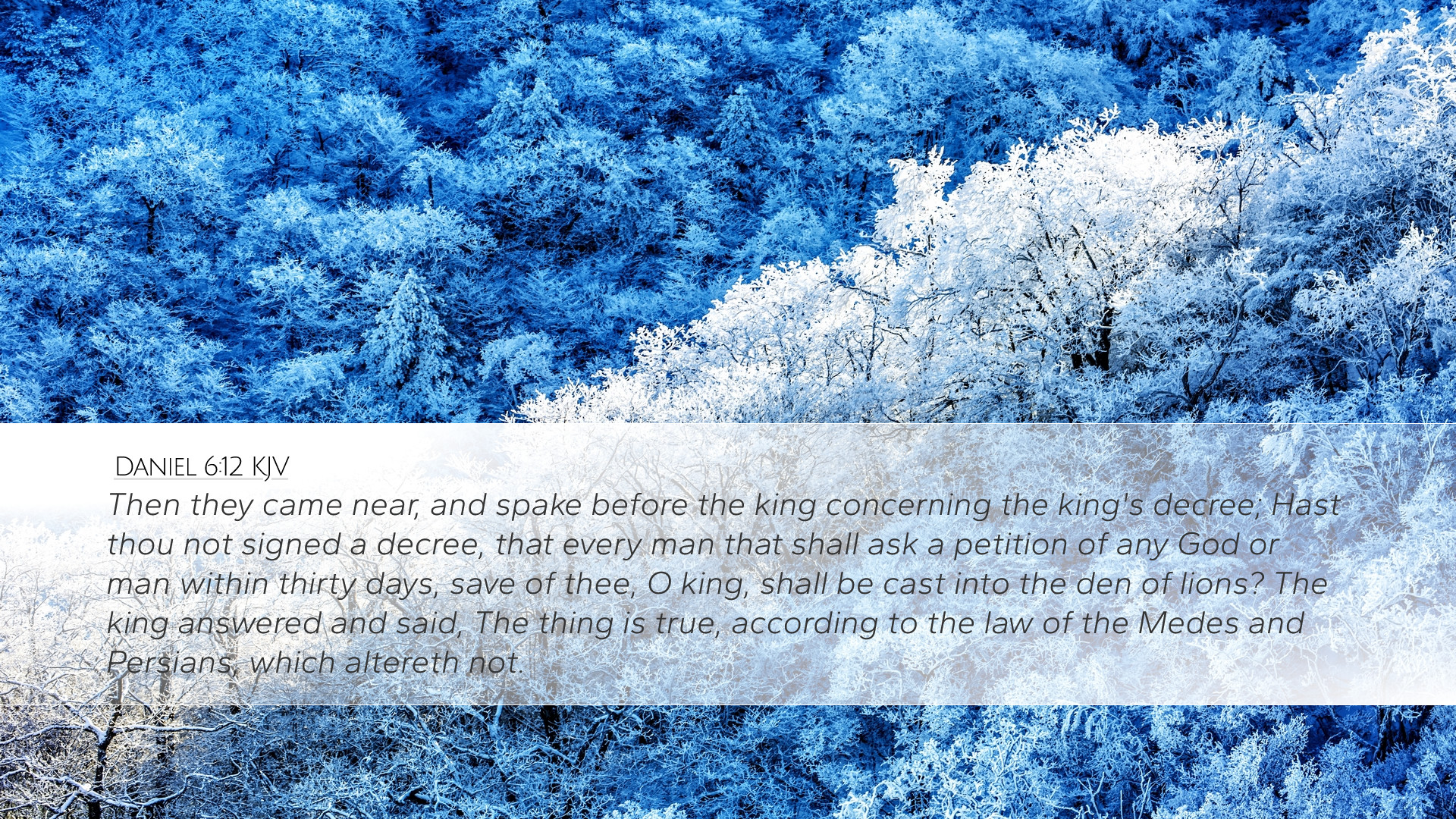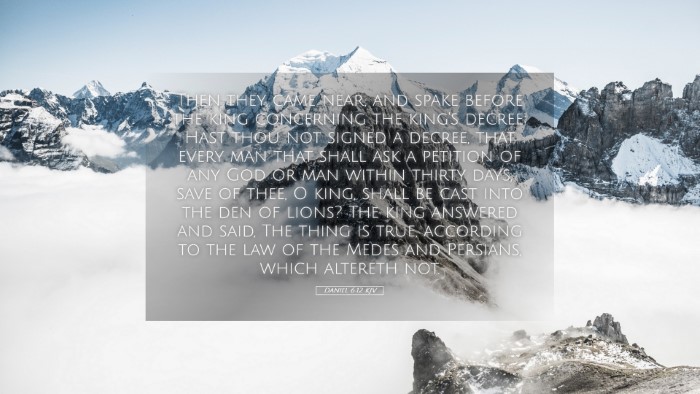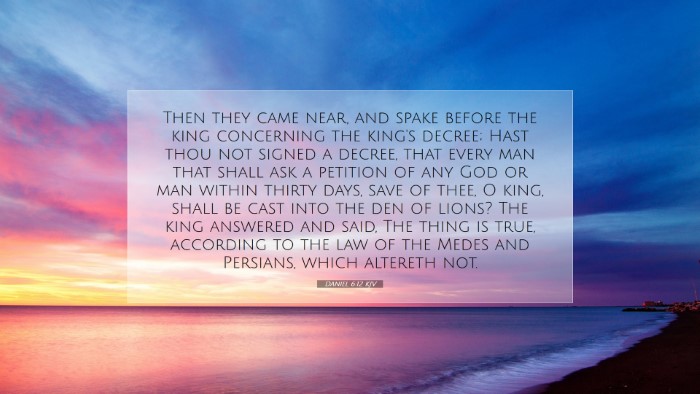Commentary on Daniel 6:12
Verse Text: "Then they came near, and spake before the king concerning the king's decree; Hast thou not signed a decree, that every man that shall ask a petition of any god or man within thirty days, save of thee, O king, shall be cast into the den of lions?"
Introduction
This verse from Daniel describes a pivotal moment in the narrative that illustrates the tension between the political machinations of the Babylonian court and the faithfulness of Daniel. The decree, signed by King Darius, reflects a test of loyalty to the king, but it also serves as a larger backdrop for the conflict between secular authority and divine obedience.
Contextual Overview
The events occurring in Daniel 6 take place during the Babylonian captivity, specifically under the reign of Darius the Mede. Daniel’s exemplary character and administrative prowess had placed him in a position of significant authority within the kingdom. His integrity and piety made him a target for jealousy among the other officials.
Public Domain Commentary Insights
Matthew Henry's Commentary
- On the King's Decree: Henry notes that the decree which prohibits petitions to any god or man except to the king himself serves to elevate the ruler's status to that of a deity. This illustrates the culture of deification of monarchs in ancient Near Eastern societies.
- On the Conspirators: He highlights the craftiness of Daniel's adversaries, who seek to trap him by exploiting the lawful decree of the king. Henry asserts that they recognized Daniel's unwavering devotion to God, which made him vulnerable to their plot.
Albert Barnes' Notes
- Concerning the Legal Context: Barnes explains that the decree was irrevocable according to the laws of the Medes and Persians. This legal rigidity sets the stage for a significant conflict between effectively serving the state and remaining faithful to God.
- On the Nature of Petition: He points out that the Hebrew term for "petition" implies a request or supplication, emphasizing the personal aspect of worship and the necessity of true worship being directed solely toward God.
Adam Clarke's Commentary
- On the Interrogation of the King: Clarke notes that the inquiry posed to Darius was strategically framed to emphasize the consequences of violating the decree. This highlights the elaborate scheme of his enemies.
- Fatal Consequences: He stresses that the penalty of being cast into the den of lions illustrates the severe repercussions for any act of dissent against the king's authority, thereby heightening the stakes for Daniel.
Theological Implications
The events in this passage speak profoundly to themes of loyalty, faith, and civil disobedience. Daniel stands as a figure of unwavering faith amidst systemic opposition, suggesting that obedience to God may come into conflict with societal expectations.
Faithfulness in Adversity
Daniel’s refusal to cease praying to God despite the decree represents the ultimate act of faithfulness. It illustrates that true allegiance to God supersedes earthly authorities, a principle central to Christian theology.
Authority and Submission
The king’s decree raises significant questions about the nature of authority and obedience. While believers are called to submit to governing authorities, this verse underscores the principle that such submission does not extend to actions that contradict God's commands.
Applications for Pastors and Theologians
This commentary invites pastors and theologians to consider how to navigate the tension between faith and authority in contemporary contexts. The ability to discern when to obey human rulers and when to stand firm in faith can serve as a guiding principle for churches facing governmental pressures.
Lessons for Modern Believers
- Courage in Faith: Daniel’s example encourages believers to hold firm to their faith, even in the face of societal pressures to conform.
- Importance of Prayer: Daniel’s commitment to prayer serves as a reminder of the need for constant communication with God, especially during trials.
- Community Response: The reaction of the court to Daniel’s faith speaks to the communities of faith and how they respond collectively to systemic challenges.
Conclusion
Daniel 6:12 serves not only as a historical account but also as an enduring source of inspiration and instruction for believers navigating their faith amidst worldly governance. The interplay of faithfulness, authority, and the cost of commitment remains as relevant today as it was in ancient Babylon. The insights offered by the respected commentaries deepen our understanding and encourage us to emulate Daniel’s courage and unwavering dedication to God.


